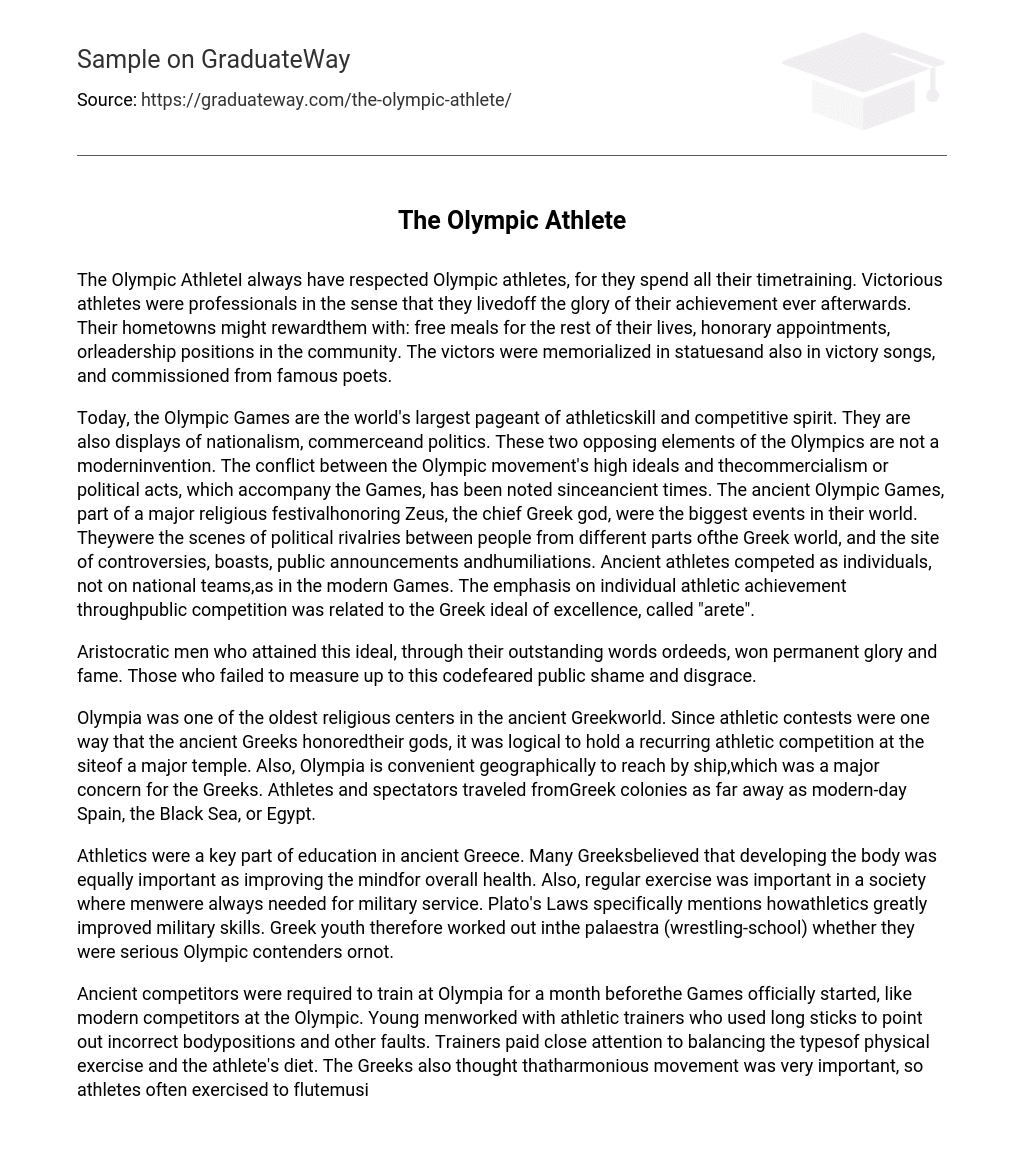I always have respected Olympic athletes, for they spend all their timetraining. Victorious athletes were professionals in the sense that they livedoff the glory of their achievement ever afterwards. Their hometowns might rewardthem with: free meals for the rest of their lives, honorary appointments, orleadership positions in the community. The victors were memorialized in statuesand also in victory songs, and commissioned from famous poets.
Today, the Olympic Games are the world’s largest pageant of athleticskill and competitive spirit. They are also displays of nationalism, commerceand politics. These two opposing elements of the Olympics are not a moderninvention. The conflict between the Olympic movement’s high ideals and thecommercialism or political acts, which accompany the Games, has been noted sinceancient times.
The ancient Olympic Games, part of a major religious festivalhonoring Zeus, the chief Greek god, were the biggest events in their world. Theywere the scenes of political rivalries between people from different parts ofthe Greek world, and the site of controversies, boasts, public announcements andhumiliations. Ancient athletes competed as individuals, not on national teams,as in the modern Games. The emphasis on individual athletic achievement throughpublic competition was related to the Greek ideal of excellence, called “arete”.
Aristocratic men who attained this ideal, through their outstanding words ordeeds, won permanent glory and fame. Those who failed to measure up to this codefeared public shame and disgrace.
Olympia was one of the oldest religious centers in the ancient Greekworld. Since athletic contests were one way that the ancient Greeks honoredtheir gods, it was logical to hold a recurring athletic competition at the siteof a major temple. Also, Olympia is convenient geographically to reach by ship,which was a major concern for the Greeks. Athletes and spectators traveled fromGreek colonies as far away as modern-day Spain, the Black Sea, or Egypt.
Athletics were a key part of education in ancient Greece. Many Greeksbelieved that developing the body was equally important as improving the mindfor overall health. Also, regular exercise was important in a society where menwere always needed for military service. Plato’s Laws specifically mentions howathletics greatly improved military skills. Greek youth therefore worked out inthe palaestra (wrestling-school) whether they were serious Olympic contenders ornot.
Ancient competitors were required to train at Olympia for a month beforethe Games officially started, like modern competitors at the Olympic. Young menworked with athletic trainers who used long sticks to point out incorrect bodypositions and other faults. Trainers paid close attention to balancing the typesof physical exercise and the athlete’s diet. The Greeks also thought thatharmonious movement was very important, so athletes often exercised to flutemusic.
The sports have changed dramatically, but the pride of being an Olympiccompetitor has remained as strong as ever! The most important thing in theOlympic Games is not to win but to take part, just as the most important thingin life is not the triumph, but the struggle. “The essential thing is not tohave conquered but to have fought well” (Pierre de Coubertin).





